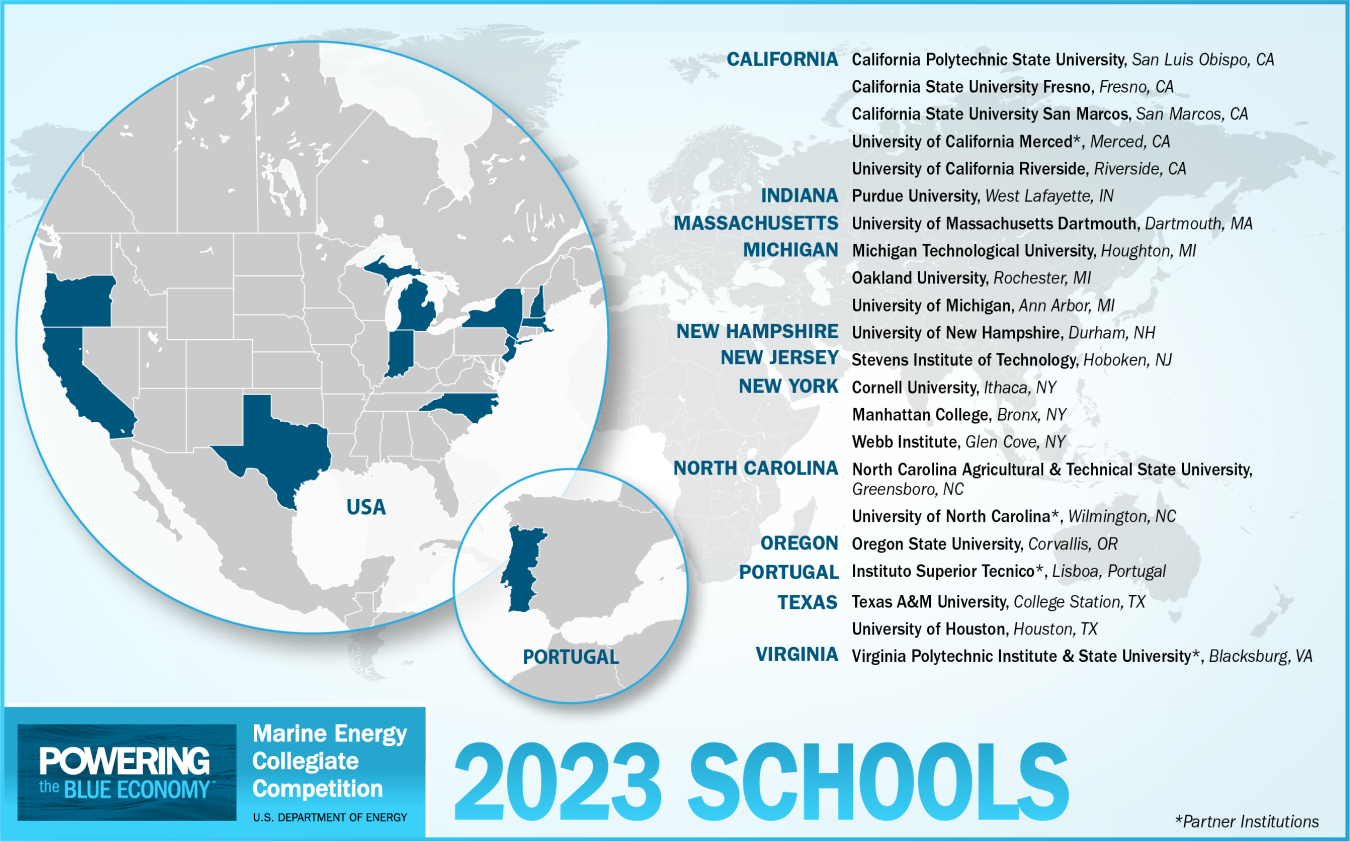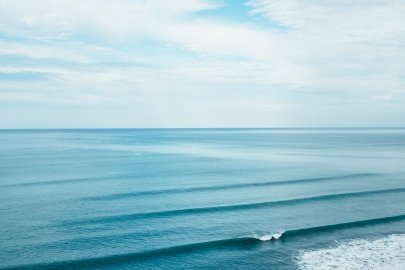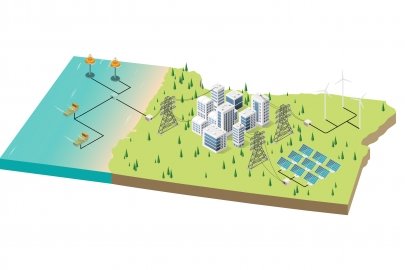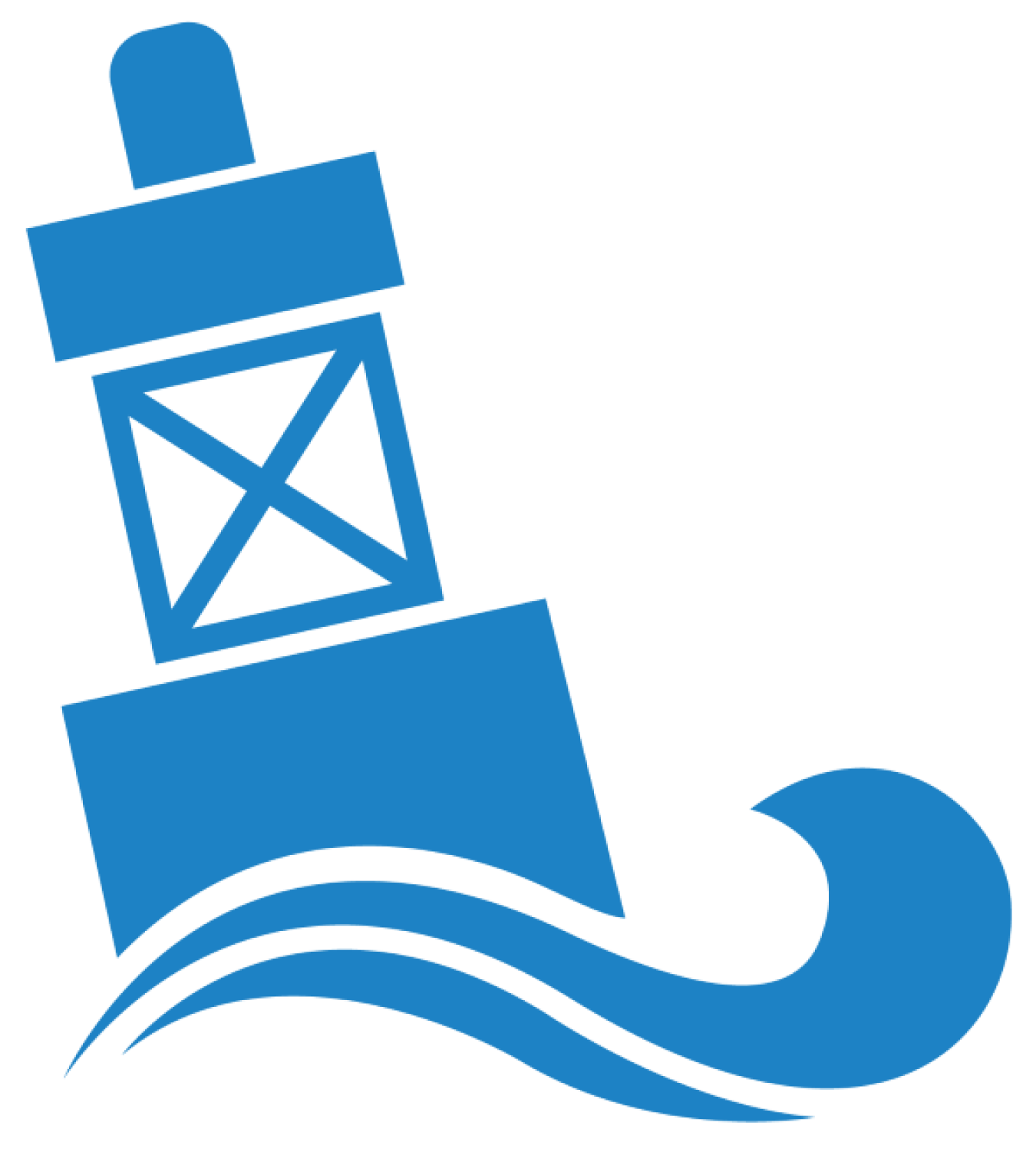WPTO hosted the third annual Marine Energy Collegiate Competition and selected the teams to compete in the fourth annual competition.
Water Power Technologies Office
March 1, 2023Marine Energy Program
Data Access, Analytics, and Workforce Development
Project Name: Marine Energy STEM and Workforce Development
Competitors (2022): Boise State University; California State University, San Marcos (partnering with New Mexico State University); Federal University of Rio de Janeiro; Michigan Technological University; North Carolina A&T State University (partnering with University of North Carolina Wilmington); Oregon State University; Purdue University; Texas A&M University at Galveston (partnering with Sam Houston State University, University of Rochester, University of Sao Paulo, Qatar University, and University of Engineering and Technology, Taxila); University of California, Riverside; University of Houston; University of Massachusetts Dartmouth; University of New Hampshire; University of North Florida; University of Washington; Virginia Tech (partnering with Stevens Institute of Technology); Virginia Tech (partnering with University of Maine, Pennsylvania State University, and Queen's University Belfast); Webb Institute
Competitors (2023): California Polytechnic State University; California State University Fresno; California State University San Marcos; Cornell University; Instituto Superior Tecnico; Manhattan College; Michigan Technological University; North Carolina Agricultural & Technical State University; Oakland University; Oregon State University; Purdue University; Stevens Institute of Technology; Texas A&M University; University of California Merced; University of California Riverside; University of Houston; University of Massachusetts Dartmouth; University of Michigan; University of New Hampshire; University of North Carolina; Virginia Polytechnic

In June 2022, the U.S. Department of Energy’s Water Power Technologies Office (WPTO) announced the winners of the third annual Marine Energy Collegiate Competition (MECC) and the 19 teams selected for the fourth annual competition. MECC provides undergraduate and graduate students with real-world experience and industry connections to help them prepare for future careers in the marine energy sector and the blue economy. The competition challenges multidisciplinary student teams to advance the marine energy industry by proposing ideas for how to capture the power of the ocean.
In 2022, MECC hosted 17 teams, each of which developed designs and business plans to power blue economy activities, like marine research and offshore seafood farming, using a diverse range of marine energy technologies. Of those, 13 built and tested their designs in wave tanks, and the Virginia Tech team tested its prototype in a lake by creating waves with a boat. The competition also held a virtual poster session, which brought students together with industry representatives. Webb Institute emerged from the competition as the overall winner, followed by Oregon State University and the University of New Hampshire.
MECC is funded by WPTO and administered by the National Renewable Energy Laboratory.

Data Access, Analytics, and Workforce Development Projects
-
 WPTO selected three fellows for the 2022 Marine Energy Graduate Research Program and expanded eligibility to all graduate-level students for the 2023 program.
WPTO selected three fellows for the 2022 Marine Energy Graduate Research Program and expanded eligibility to all graduate-level students for the 2023 program. -
 New report provides a framework to assess marine energy’s potential grid benefits from supporting local resilience to complementing other renewable energy resources.
New report provides a framework to assess marine energy’s potential grid benefits from supporting local resilience to complementing other renewable energy resources.
WPTO's Marine Energy e-newsletter shares news and updates on tools, analysis, and emerging technologies to advance marine energy.
The WPTO e-newsletter brings funding opportunities, events, publications, hydropower, and marine energy updates directly to your inbox.


